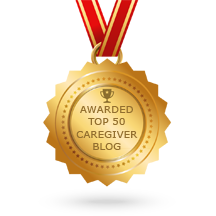Being a caregiver is far from easy, especially when the caregiver is responsible for caring for a parent, spouse or family member who is dying from a debilitating illness. Caregivers are often forced to watch their loved ones slowly sink into a deteriorating state of health and to put their own well-being and needs on the backburner to provide care for loved one.
As the population’s average age increases, more and more people who are not health care professionals are required to become primary caregivers for aging and ill loved ones. According to the Mayo Clinic, “informal caregivers provide 80 percent of long-term care in the United States.”
These individuals are almost certain to experience a wide range of emotions, such as anger, frustration, exhaustion and sadness, that can cause a great deal of stress.
According to researchers at the National Institutes of Health, “the caregiver’s burden is complex and complicated by multiple competing priorities. Because caregivers are often faced with multiple concurrent stressful events and extended, unrelenting stress, they may experience negative health effects, mediated in part by immune and autonomic dysregulation.”
As a caregiver’s stress levels go up, they become more susceptible to a number of health issues, including depression and anxiety disorders, compromised physical health and substance use disorders.
Factors That Lead to Caregiver Substance Abuse
Stress and declining mental health are linked to being a caregiver. Caregivers often have no choice in the matter of caring for their loved one and are frequently driven to social isolation and depression.
According to the Family Caregiver Alliance, approximately 25 percent of family caregivers meet the criteria for major depression.
Ninety percent of caregivers say the worry more or feel more stress since beginning to take of their charge, according to the National Alliance for Caregiving.
About 16 percent of caregivers report feeling emotionally strained and 26 percent say that taking care of an individual is emotionally difficult, according to the Family Caregiver Alliance. Approximately 22 percent of caregivers say they are exhausted when they go to sleep at night, and many struggle with their caregiving responsibilities.
For caregivers, drugs and alcohol — including prescription drugs — can be a way to escape stress. Substance abuse becomes a means to cope with their emotions.
According to the Family Caregiver Alliance, “caregivers are shown to have increased alcohol and other substance use.”
More than 51 percent of caregivers report taking more medication as a result of their role as a caregiver. About 10 percent report regularly abusing drugs or alcohol more often, according to the Family Caregiver Alliance.
Tackling Caregiver Substance Abuse
For caregivers, there are steps that can be taken to lighten the pressure they feel and help prevent substance abuse, such as:
- Assistance: One of the best ways to get out from under the immense stress a caregiver feels is to allow others to help them with their responsibilities. Allowing a friend, family member or neighbor to do simple things such as pick up groceries or cook for the caregiver can make a monumental difference in the amount of stress the caregiver feels.
- Goals: Caregivers are often asked to handle more responsibility than one person can reasonably take on at one time. Setting realistic daily goals can be a great way to get a hold of the priorities in a caregiver’s life.
- Find Resources: Many cities and communities have a network of resources to support caregivers in this difficult phase of their lives.
- Find Peer Support: Support groups for others going through similar situations can be extremely beneficial to caregivers who often feel like they have no one who can relate to what they’re going through.
Sources:
Bevans, M. & Sternberg, E. (2012, January 25). Caregiving Burden, Stress, and Health Effects Among Family Caregivers of Adult Cancer Patients. Retrieved from https://www.ncbi.nlm.nih.gov/pmc/articles/PMC3304539/
Family Caregiver Alliance. (n.d.). A Population at Risk. Retrieved from https://www.caregiver.org/caregiver-health
Mayo Clinic. (2015, March 7). Caregiver stress: Tips for taking care of yourself. Retrieved from http://www.mayoclinic.org/healthy-lifestyle/stress-management/in-depth/caregiver-stress/art-20044784
National Alliance for Caregiving. (2006, September). Evercare Study of Caregivers in Decline: A Close-up Look at the Health Risks of Caring for a Loved One. Retrieved from http://www.caregiving.org/data/Caregivers%20in%20Decline%20Study-FINAL-lowres.pdf
Sinha, R. (2008, October). Chronic Stress, Drug Use, and Vulnerability to Addiction. Retrieved from https://www.ncbi.nlm.nih.gov/pmc/articles/PMC2732004/
I thank Trey Dyer for this guest post.
About the Author: Trey Dyer is a writer for DrugRehab.com and an advocate for mental health and substance use disorder treatment. When Trey is not writing, he can be found cooking, fishing or playing indoor soccer.

2 Comments (+add yours?)